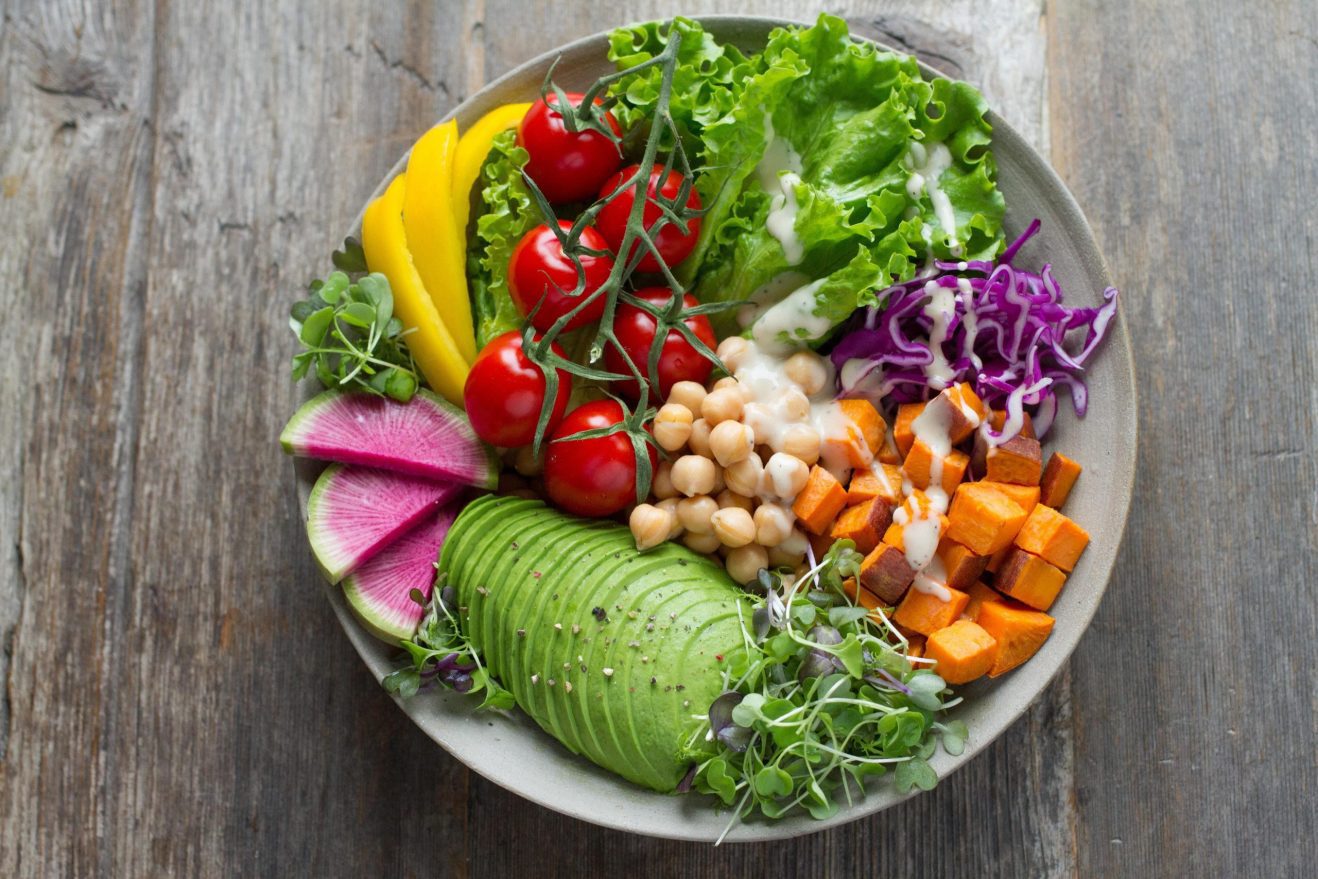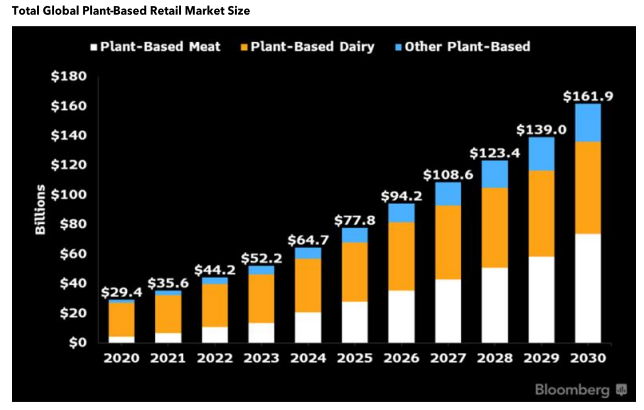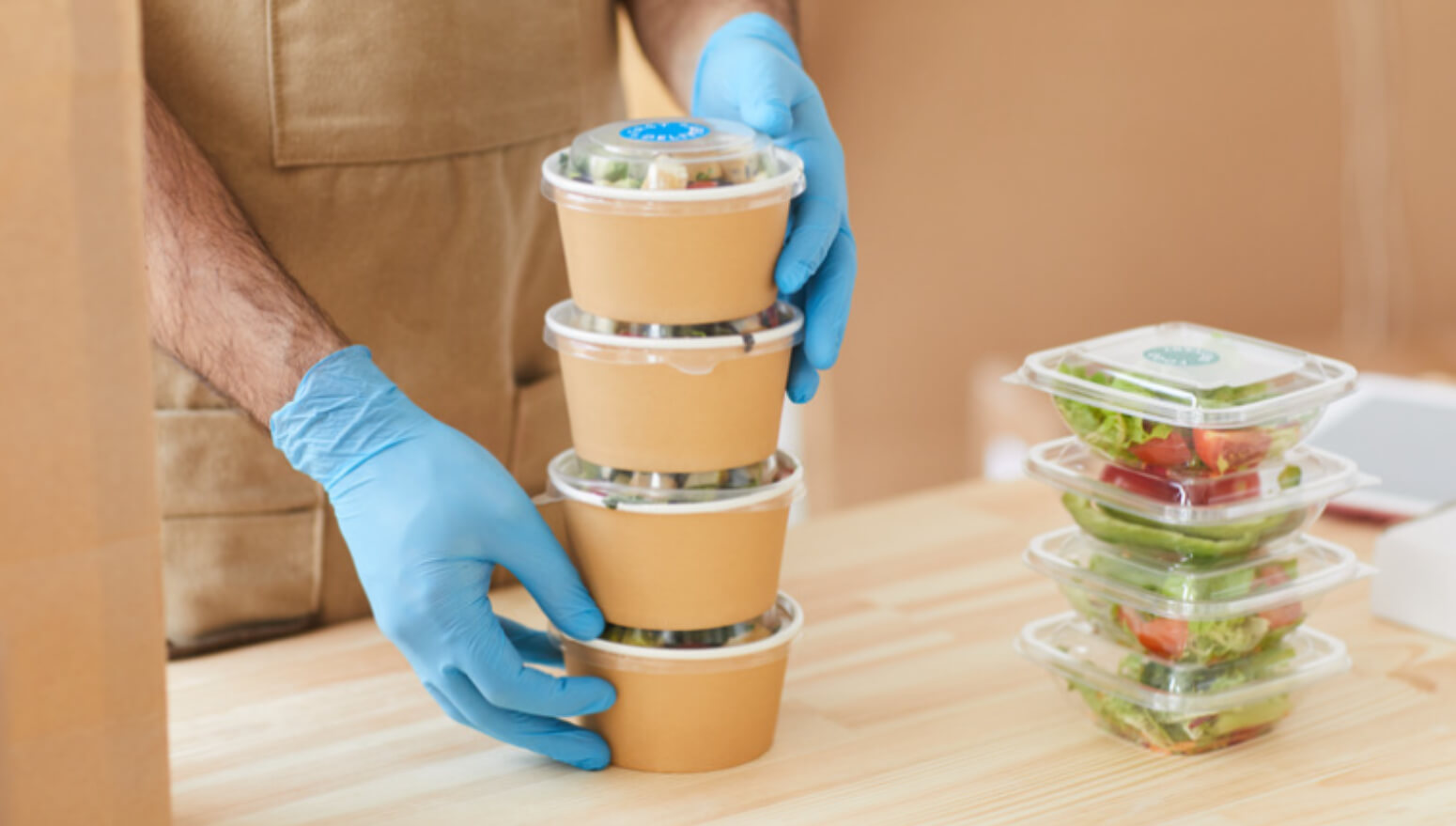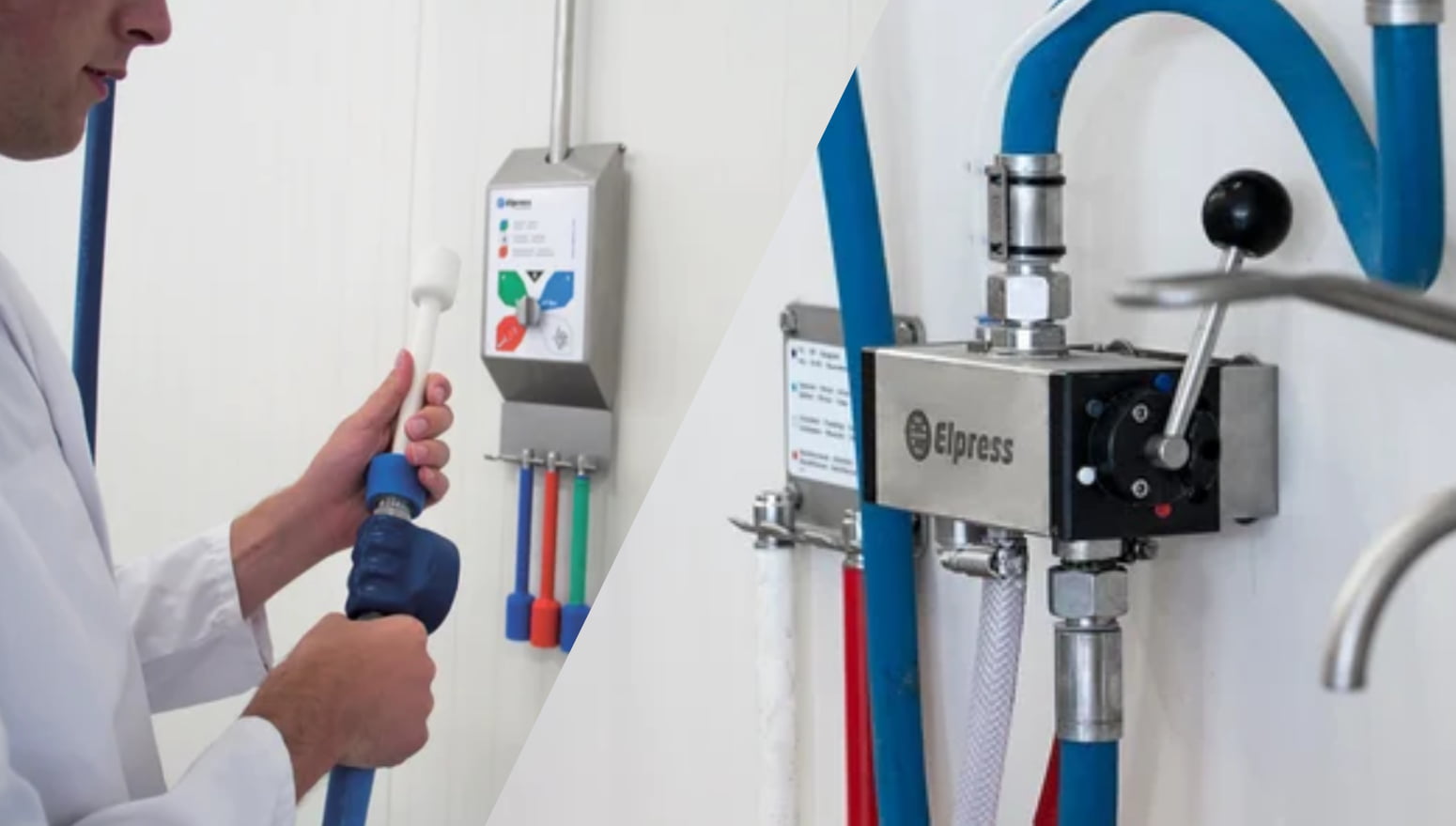
As food processing equipment experts, we have a keen eye on food industry trends and evolving consumer demand and, in recent years, we’ve watched plant based and meat free meals become more and more popular. The plant based industry is right at the heart of the growing vegetarian, vegan and flexitarian (yes that’s right, flexitarian) movements.
So how can we support your plant based food business with technology and solutions to streamline your processes and drive your growth? Keep reading to find out.
Overview:
- Plant based food industry growth
- Plant based industry trends
- Processing equipment for plant based food producers
- NZ & Australian plant based industry FAQs
Plant based food industry growth
A new report by Bloomberg Intelligence has found that the plant-based meat and dairy sectors are growing at an unprecedented rate. The report predicts that the plant based food market will exceed $162 billion within the next decade.

FPE is ready to support the growing demand for plant based food by offering decades of food processing industry knowledge, world class equipment and complementary services to plant based meat producers in New Zealand and Australia.
See also:
Plant based industry trends
Vegetarian diet
According to Roy Morgan, 2.5 million Australians (12.1% of the population) now have a diet of which the food is all, or almost all, vegetarian (see also ‘flexitarian diet’ below). This is up from under 2.2 million (11.2%) in 2014.
In addition to greater volume and variety of vegetables, a feature of vegetarianism is a whole host of meat substitutes, such as:
- Tofu
- Quorn and Mycoprotein
- Tempeh
The growth of “plant based meat” and “plant based proteins” is also thanks to the popularity increase of veganism.
Vegan diet
Between 2015 and 2020, Australia’s vegan food market is projected to be the third-fastest-growing vegan market in the world with a growth rate of 9.6%. Vegan food options are now available in all major supermarkets and meal prep subscription services nationwide, as well as the majority of hospitality venues.
Veganism has seen the rise in popularity of egg substitutes and dairy alternatives, for example:
- Plant based milks, e.g. coconut, oat and almond milks
- Cashew “cheese”
- Soy yoghurt
- Vegan chocolate and “ice cream”
Flexitarian diet
Flexitarianism, also known as “casual vegetarianism”, is a predominantly vegetarian diet with occasional meat consumption. It’s the diet for conscious consumers who want to make ethical and environmentally-friendly food decisions without eliminating meat and dairy from their diet completely.
The flexitarian diet is a popular alternative to hard line vegan and vegetarian diets, and is fast becoming the diet of choice for a growing portion of the population.
Processing equipment for plant based food producers
FPE supplies best-in-class solutions for vegetarian, vegan and plant based meat producers in Australia and New Zealand.
| PROCESSING ACTIVITY | MANUFACTURER | USAGE EXAMPLES |
| Tempering/thawing | AMTek Microwave |
|
| Slicing | Grasselli and Magurit |
|
| Hard and soft separation | Sepamatic |
|
| Can opening | DC Norris |
|
| Cooking & cooling | BCH Ltd and DC Norris |
|
| Fat analysis & contaminant detection | Eagle PI |
|
| Production hygiene | Elpress |
|
| Material handling | SYSPAL |
|
Due to the critical work performed by the Eagle X-Ray food inspection machines, FPE provides a 24 hour hotline to all X-Ray equipment customers.
So, if you’re a plant based industry processor, trust FPE. For all your processing equipment, plant hygiene, mechanical handling, equipment maintenance and supplies, we’re the leading provider in Australia and New Zealand. Contact us today on 1800 882 549 in Australia and 0800 100 003 in New Zealand to discuss your business needs.
New Zealand & Australian plant based industry FAQs
What is the plant based industry?
The plant based industry encompasses vegetarian and vegan foods, including plant based eggs, meat and dairy products.
Is the plant based industry growing?
Yes. According to a new report by Bloomberg Intelligence, the plant-based meat and dairy sectors are growing at an unprecedented rate.
What are examples of plant based products?
Plant-based foods are generally classified into fruits, vegetables, legumes, grains, nuts, and seeds. Through processing, these components can be turned into plant based products to replace conventional meat and animal protein products, for example:
- Cashew “cheese”
- Soy “yoghurt”
- Almond “milk”
- Mycoprotein





